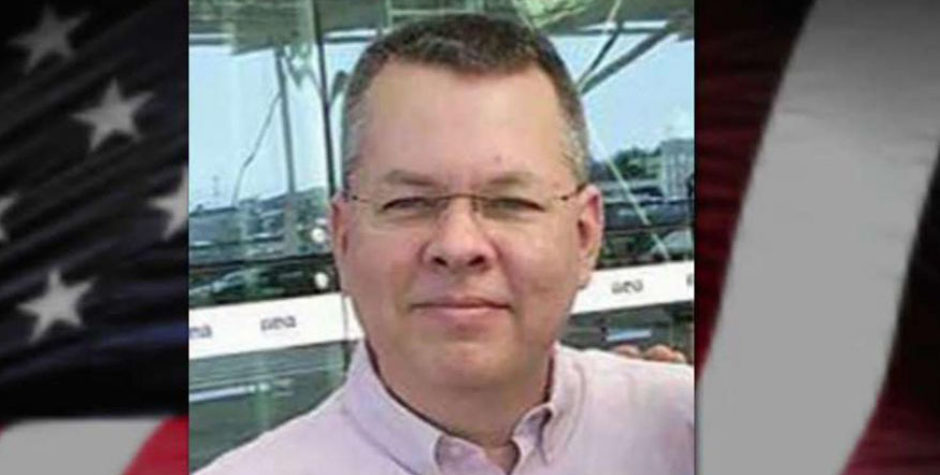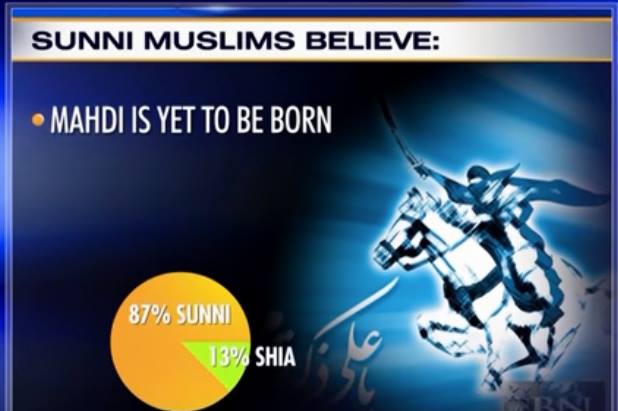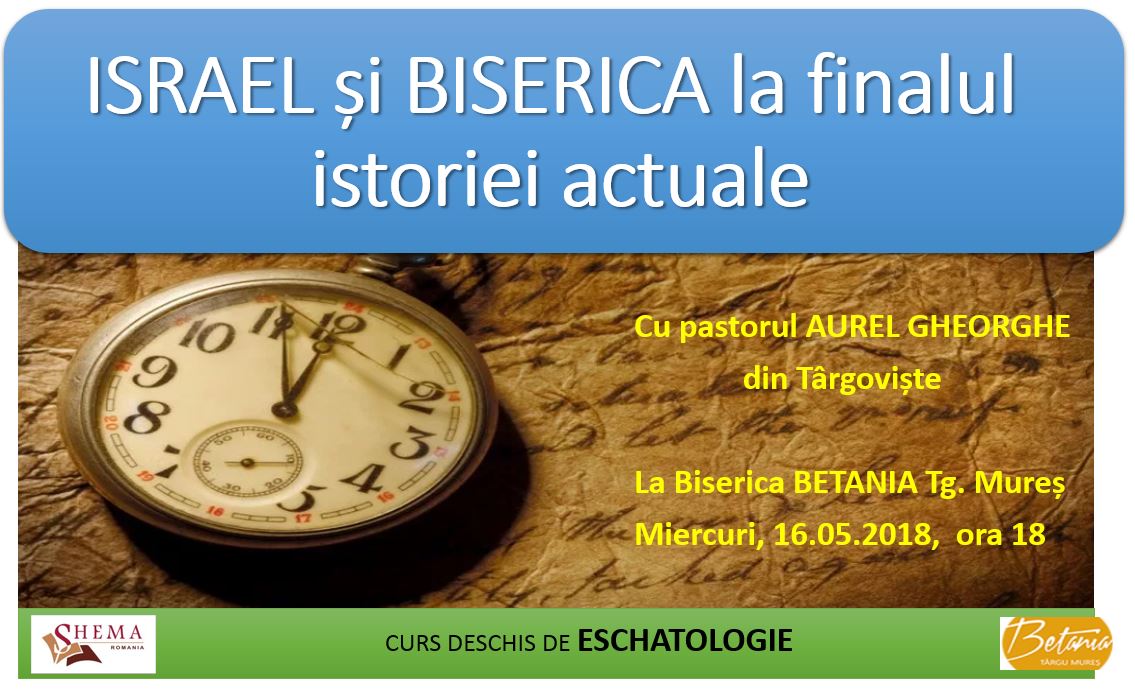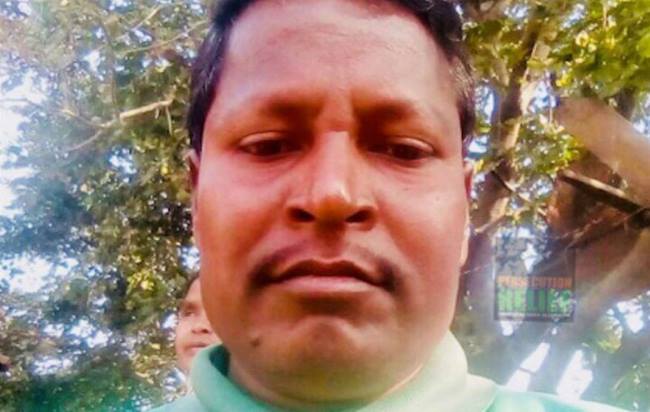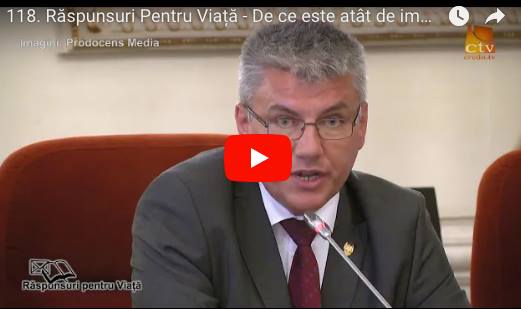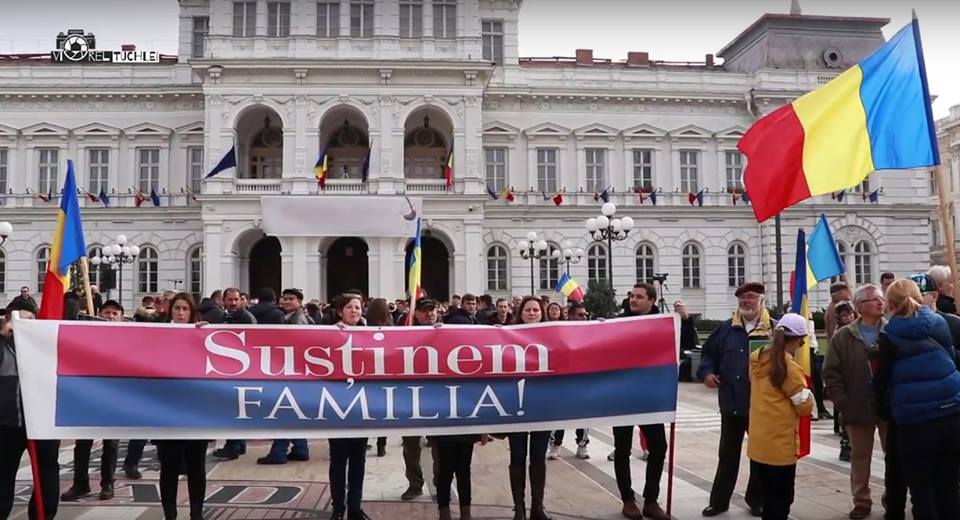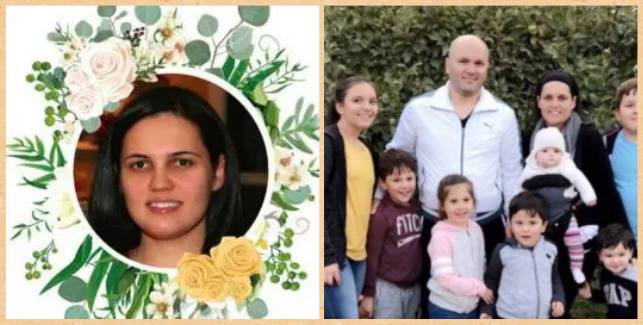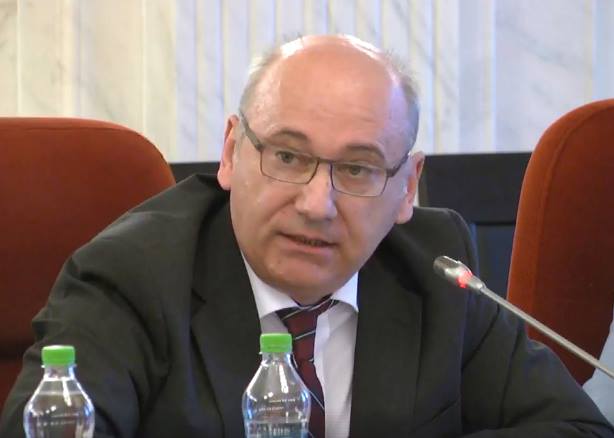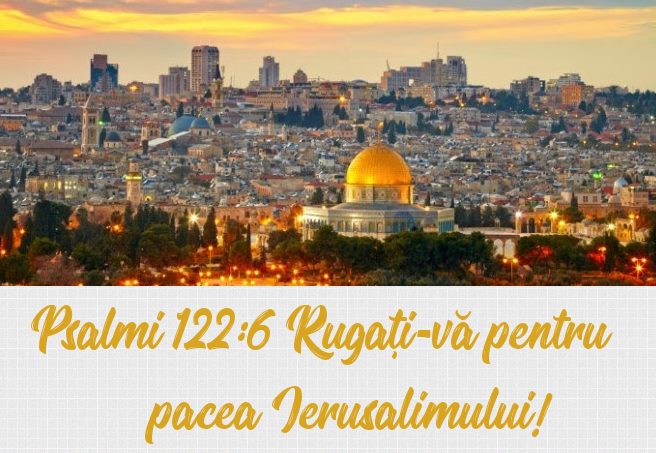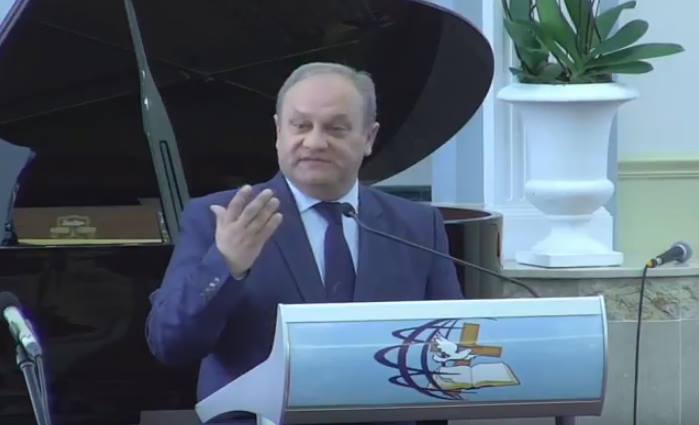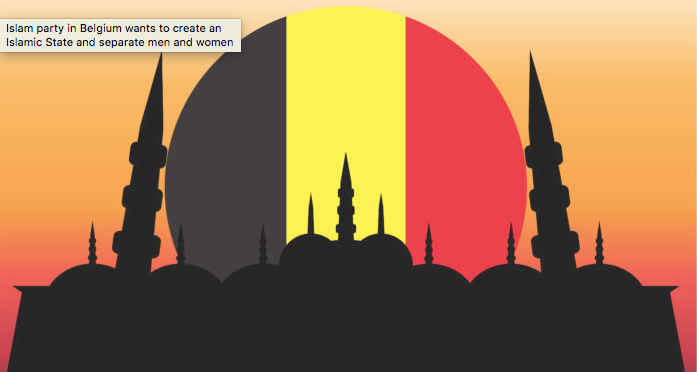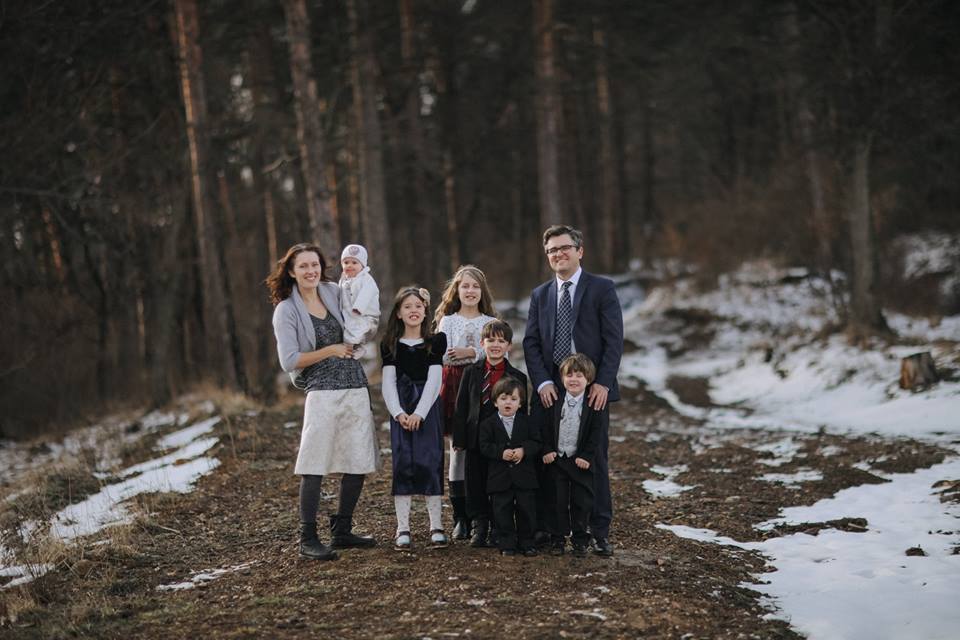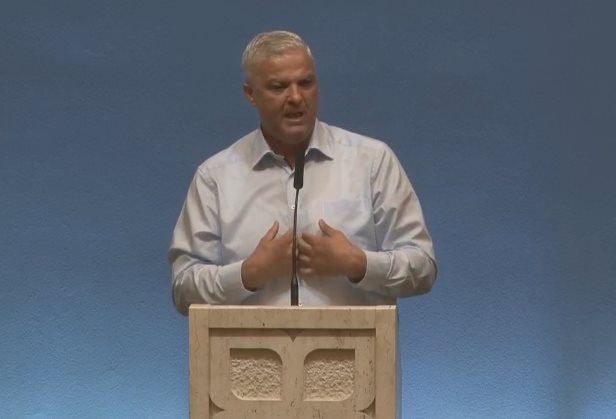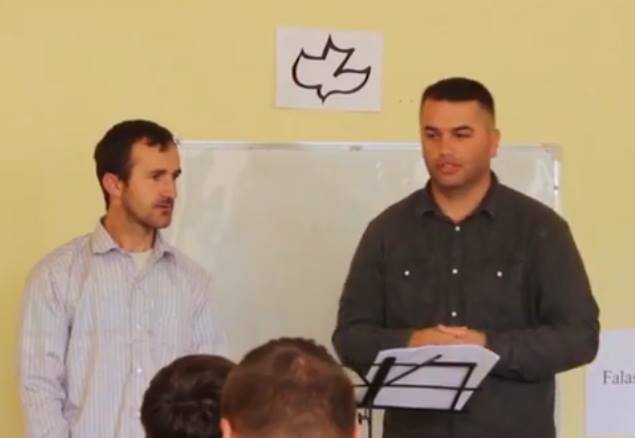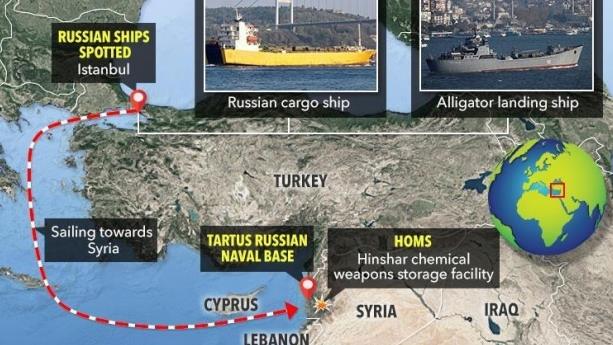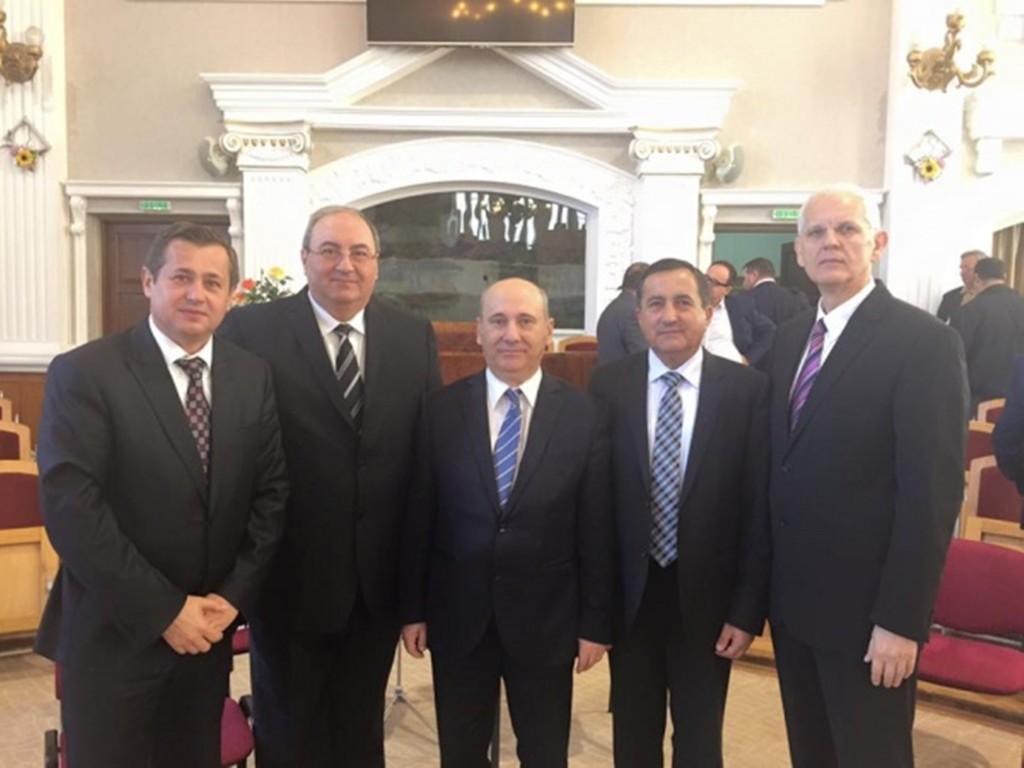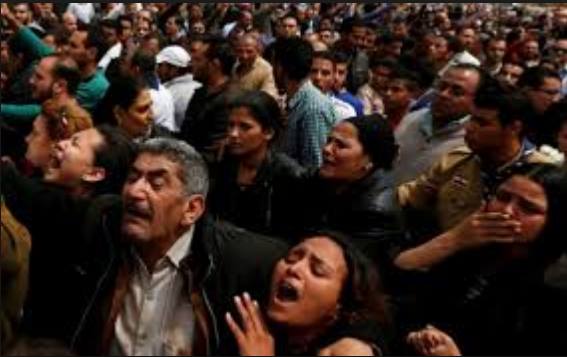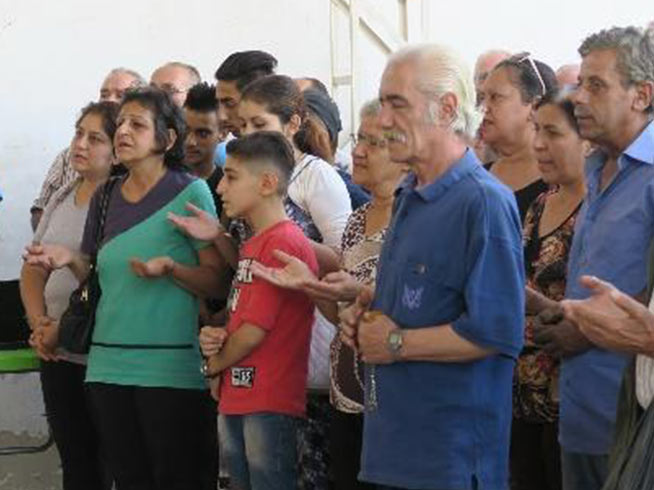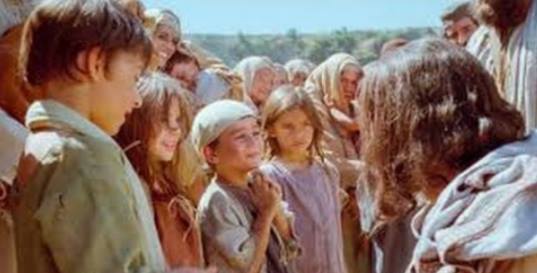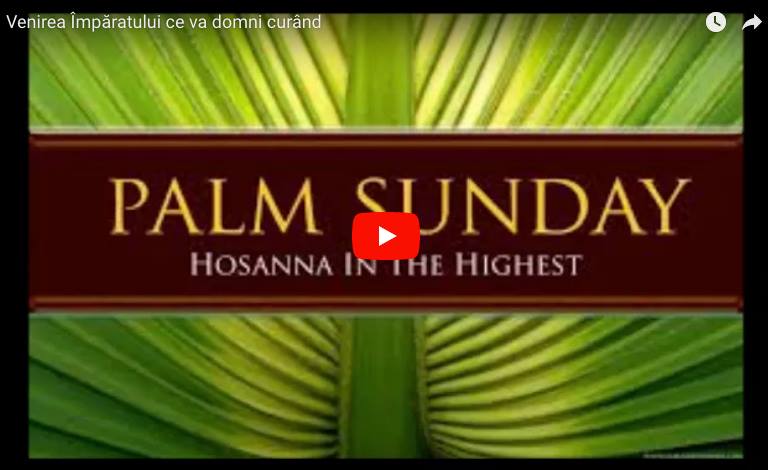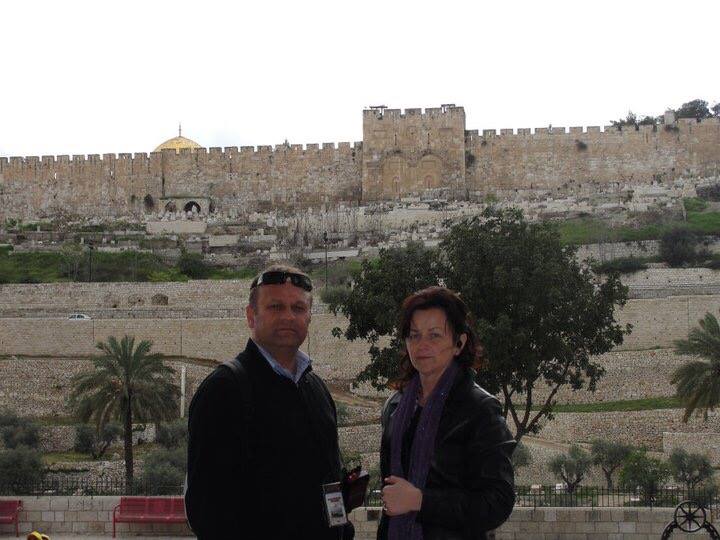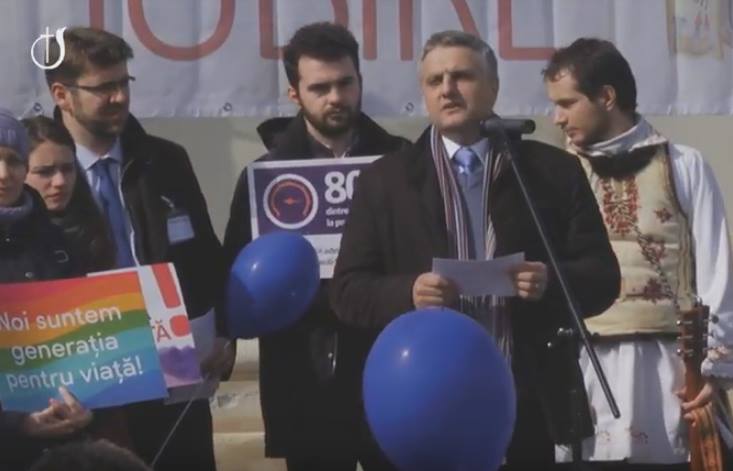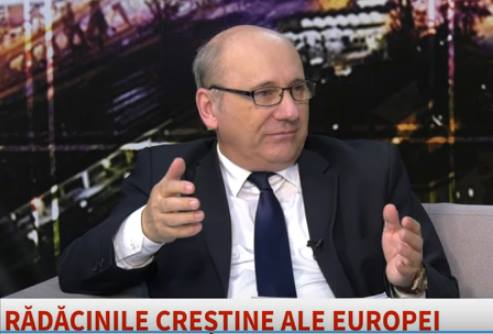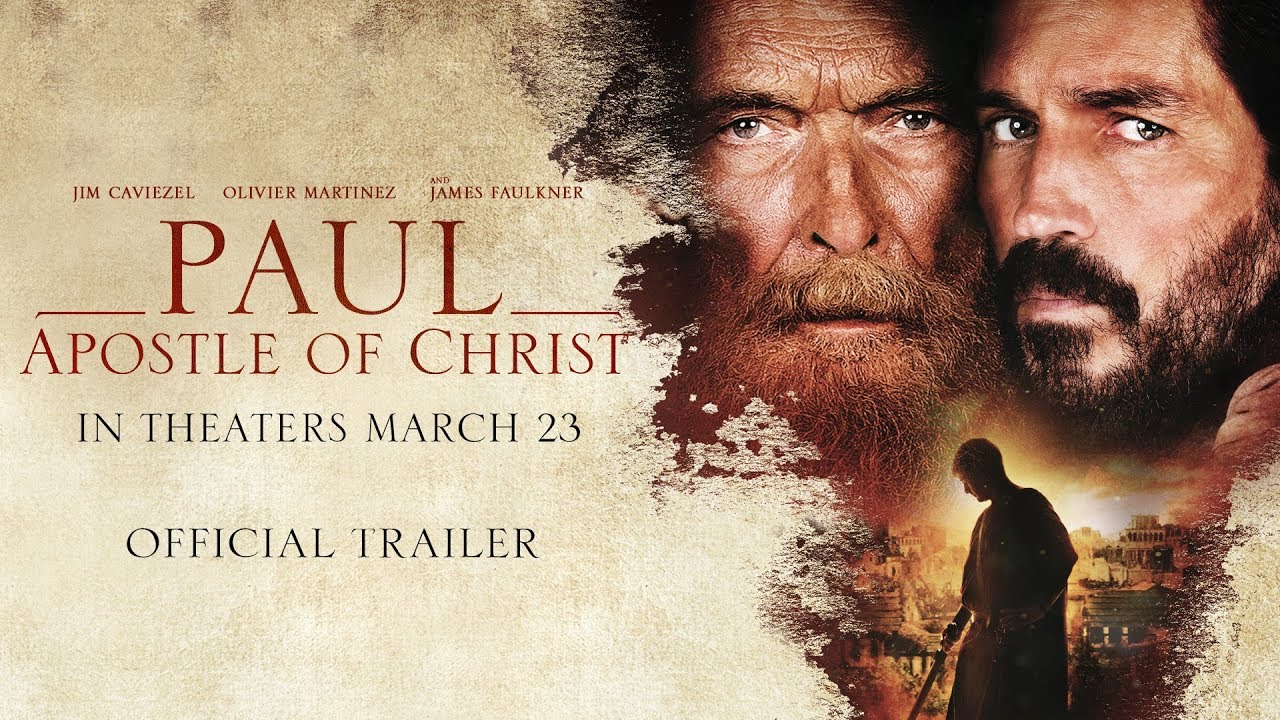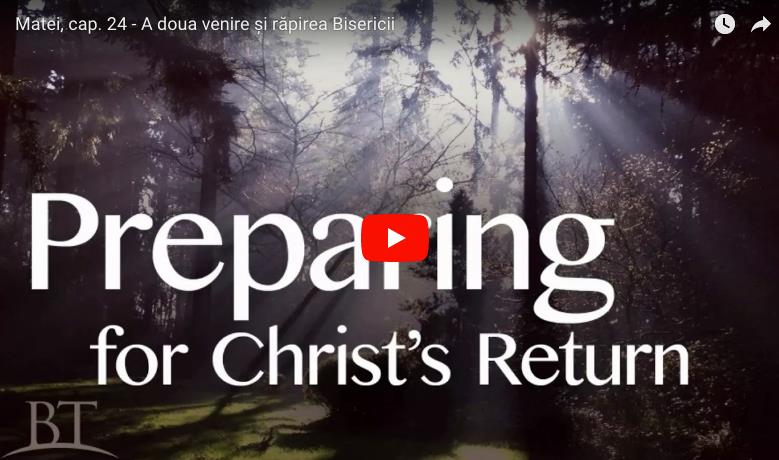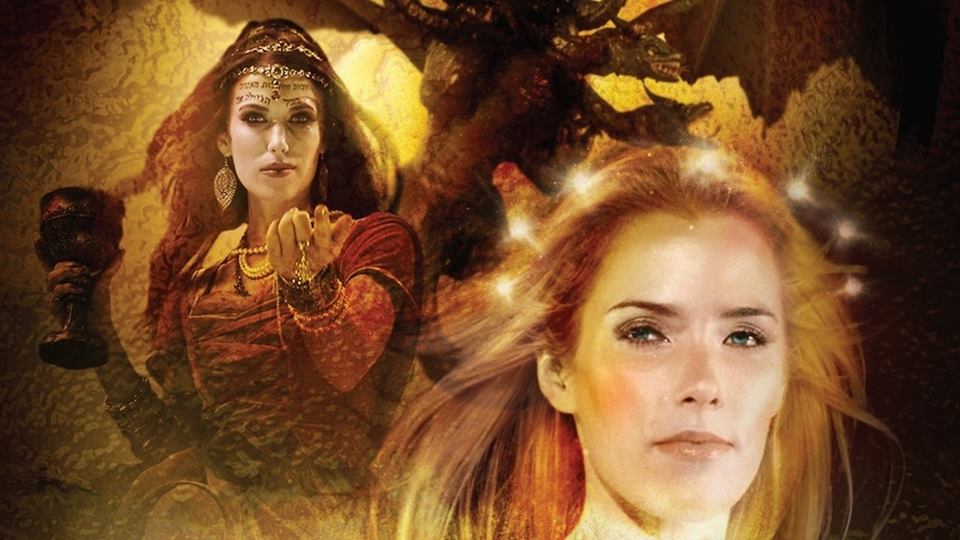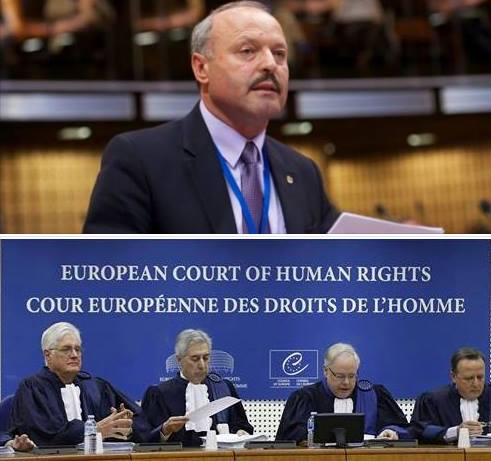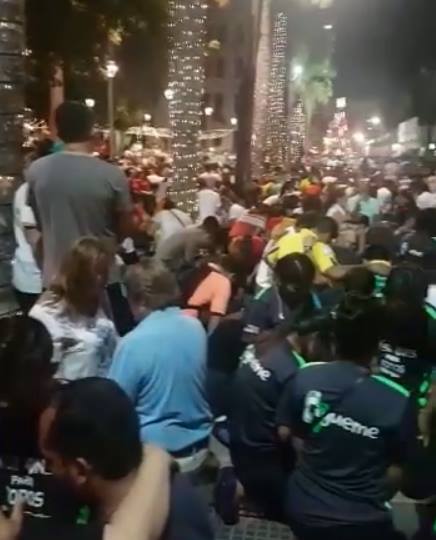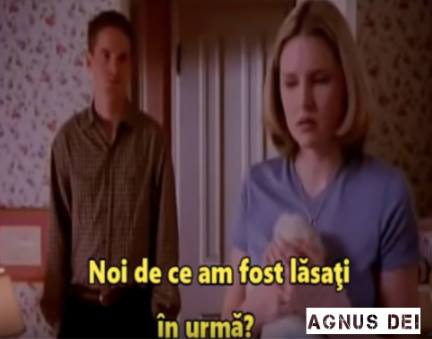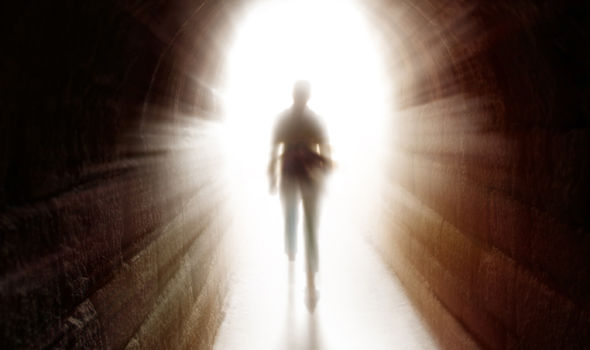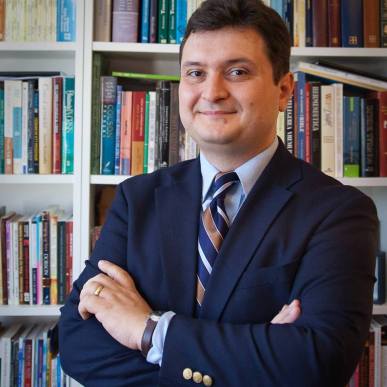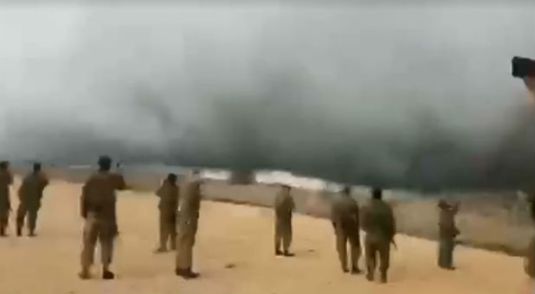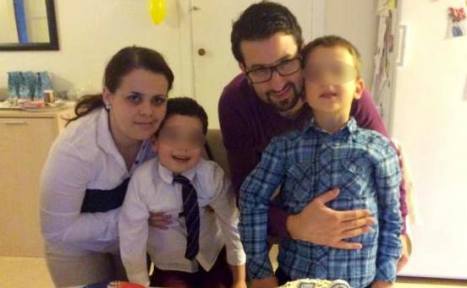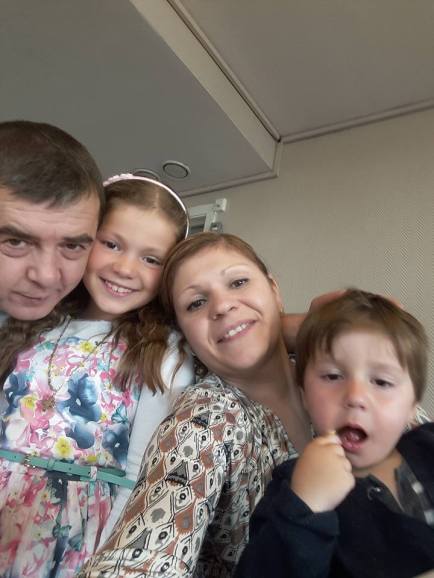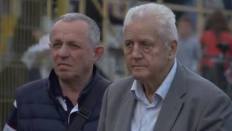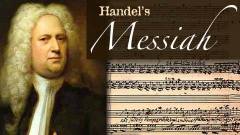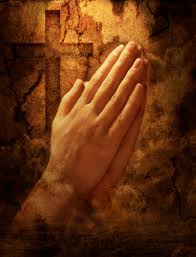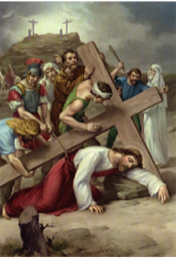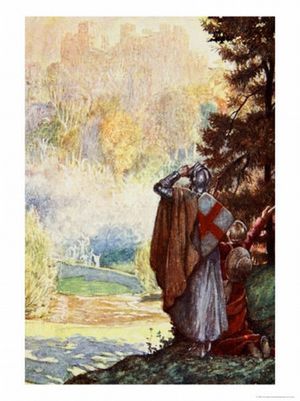Videourile Vodpod nu mai sunt disponibile.
Boasting Only in the Cross
Galatians 6:14
But may it never be that I would boast, except in the cross of our Lord Jesus Christ, through which the world has been crucified to me, and I to the world.

You don’t have to know a lot of things for your life to make a lasting difference in the world. But you do have to know the few great things that matter, and then be willing to live for them and die for them. The people that make a durable difference in the world are not the people who have mastered many things, but who have been mastered by a few great things. If you want your life to count, if you want the ripple effect of the pebbles you drop to become waves that reach the ends of the earth and roll on for centuries and into eternity, you don’t have to have a high IQ or EQ; you don’t have to have to have good looks or riches; you don’t have to come from a fine family or a fine school. You have to know a few great, majestic, unchanging, obvious, simple, glorious things, and be set on fire by them.
But I know that not everybody in this crowd wants your life to make a difference. There are hundreds of you – you don’t care whether you make a lasting difference for something great, you just want people to like you. If people would just like you, you’d be satisfied. Of if you could just have good job with a good wife and a couple good kids and a nice car and long weekends and a few good friends, a fun retirement, and quick and easy death and no hell – if you could have that (minus God) – you’d be satisfied. THAT is a tragedy in the making.
Three weeks ago we got word at our church that Ruby Eliason and Laura Edwards had both been killed in Cameroon. Ruby was over 80. Single all her life, she poured it out for one great thing: To make Jesus Christ known among the unreached, the poor, and the sick. Laura was a widow, a medical doctor, pushing 80 years old, and serving at Ruby’s side in Cameroon. The brakes failed, the car went over the cliff, and they were both killed instantly. And I asked my people: was that a tragedy? Two lives, driven by one great vision, spent in unheralded service to the perishing poor for the glory of Jesus Christ—two decades after almost all their American counterparts have retired to throw their lives away on trifles in Florida or New Mexico. No. That is not a tragedy. That is a glory.
I tell you what a tragedy is. I’ll read to you from Reader’s Digest (Feb. 2000, p. 98) what a tragedy is: „Bob and Penny… took early retirement from their jobs in the Northeast five years ago when he was 59 and she was 51. Now they live in Punta Gorda, Florida, where they cruise on their 30 foot trawler, play softball and collect shells.” The American Dream: come to the end of your life – your one and only life – and let the last great work before you give an account to your Creator, be „I collected shells. See my shells.” THAT is a tragedy. And people today are spending billions of dollars to persuade you to embrace that tragic dream. And I get forty minutes to plead with you: don’t buy it.
Don’t waste your life. It is so short and so precious. I grew up in a home where my father spent himself as an evangelist to bring the gospel of Jesus Christ to the lost. He had one consuming vision: Preach the gospel. There was a plaque in our kitchen for all my growing up years. Now it hangs in our living room. I have looked at it almost daily for about 48 years. It says, „Only one life, twill soon be past. Only what’s done for Christ will last.”
I am here at One Day in a sense as a father. I am 54 years old. I have four sons and one daughter: Karsten is 27, Benjamin is 24, Abraham is 20, Barnabas is 17. Talitha is four. Few things, if any, fill me with more longing these months and years than the longing that my grown sons not waste their lives on fatal success.
So I look out on you as sons and daughters and I plead with you as a father – perhaps the father you never had. Or the father who never had a vision for you like I have for you, and God has for you. Or the father who HAS a vision for you, but its all about money and status. I look out on you as sons and daughters and I plead with you: Want your lives to count for something great and for eternity. Want this. Don’t coast through life without a passion.
One of the reasons I have loved the vision of Passion 98 and Passion 99 and One Day is that the 268 declaration is so clearly what my life is about. The declaration is based on Isaiah 26:8 – „Yes, LORD, walking in the way of your laws, we wait for you; your name and renown are the desire of our hearts.” Here is not just a body but a soul. Here is not just a soul, but a soul with a passion and a desire. Here is not just a desire for being liked or for softball and shells, here is a desire for something infinitely great, and infinitely beautiful, and infinitely valuable and infinitely satisfying – The name and the glory of God – „Your name and your renown are the desire of our souls.”
This is what I live to know and long to experience. The mission statement of my life and the church I serve: „We exist – I exist – to spread a passion for the supremacy of God in all things for the joy of all peoples.”
You don’t have to say it like I say it. You don’t have to say it like Louie Giglio says it (or like Beth Moore says it or like Voddie Baucham says it).
But whatever you do, find your passion and find your way to say it and live for it and die for it. And you will make a difference that lasts. You will be like the apostle Paul. Nobody had a more single minded vision for his life than Paul did. He could say it in different ways.
Acts 20:24: „I do not account my life of any value nor as precious to myself, if only I may accomplish my course and the ministry which I received from the Lord Jesus, to testify to the gospel of the grace of God.”
One thing mattered: Finish my course, run my race.
Philippians 3:7-8: „But whatever gain I had, I counted as loss for the sake of Christ. Indeed I count everything as loss because of the surpassing worth of knowing Christ Jesus my Lord. For his sake I have suffered the loss of all things, and count them as refuse, in order that I may gain Christ.”
How shall I help you? How can I be used of God in this moment at One Day to waken in you a single passion for a single great reality that will unleash you and will set you free from small dreams and send you to the ends of the earth?
The answer I think the Lord gave me was: take them to one verse of Scripture that is as close to the center as you can get and show them why Paul says there what he says.
The verse is Galatians 6:14: „May it never be that I would boast, except in the cross of our Lord Jesus Christ, through which the world has been crucified to me, and I to the world.”
Or to state it positively: Only boast in the cross of Jesus Christ. It is a single idea. A single goal. A single passion. Only boast in the cross. The word can be translated „exult in” or „rejoice in.” Only exult in the cross of Christ. Only rejoice in the cross of Christ. Paul says let this be your single passion, you single boast and joy and exultation. In this great moment called ONE DAY let the ONE THING that you love, the one thing that you cherish, the one thing that you rejoice in and exult over be the cross of Jesus Christ.
This is shocking for two reasons.
1) One is that it’s like saying: Only boast in the electric chair. Only exult in the gas chamber. Only rejoice in the lethal injection. Let your one boast and one joy and one exultation be the lynching rope. „May it never be that I would boast, except in the cross of our Lord Jesus Christ.” No manner of execution that has ever been devised was more cruel and agonizing than to be nailed to a cross. It was horrible. You would not have been able to watch it – not without screaming and pulling at your hair and tearing your clothes. Let this be the one passion of your life.
2) That is one thing that is shocking about Paul’s words. The other is that he says this is to be the only boast of your life. The only joy. The only exultation. „May it never be that I would boast, except in the cross of our Lord Jesus Christ.”
What does he mean by this? Really? No other boast? No other exultation? No other joy except the cross of Jesus – the death of Jesus?
What about the places where Paul himself uses the same word for „boast” or „exult” for other things? For example:
Romans 5:2: „We exult in hope of the glory of God.”
Romans 5:3: „We also exult in our tribulations, knowing that they produce patience and approvedness and hope.”
2 Corinthians 12:9, „Most gladly, therefore, I will rather boast about my weaknesses.”
1 Thessalonians 2:19: „Who is our hope or joy or crown of exultation? Is it not even you?”
So, if Paul can boast and exult in all these things, what does Paul mean – that he would not „boast, except in the cross of our Lord Jesus Christ”?
But what does that mean? Is that just double talk? You exult in one thing and just say that you are exulting in another thing? No. There is a very profound reason for saying this – that all exultation, all rejoicing, all boasting in anything should be a rejoicing in the cross of Jesus Christ.
He means that, for the Christian, all other boasting, should also be a boasting in the cross. All exultation in anything else should be exultation in the cross. If you exult in the hope of glory you should be exulting in the cross of Christ. If you exult in tribulation because tribulation works hope, you should be exulting in the cross of Christ. If you exult in your weaknesses, or in the people of God, you should be exulting in the cross of Christ.
Why is this the case? For this reason: for redeemed sinners, every good thing – indeed every bad thing that God turns for good – was obtained for us by the cross of Christ. Apart from the death of Christ, sinners get nothing but judgment. Apart from the cross of Christ, there is only condemnation. Therefore everything that you enjoy in Christ – as a Christian, as a person who trusts Christ – is owing to the death of Christ. And all your rejoicing in all things should therefore be a rejoicing in the cross where all your blessings were purchased for you at the cost of the death of the Son of God, Jesus Christ.
One of the reasons we are not as Christ-centered and cross-saturated as we should be is that we have not realized that everything – everything good and every thing bad that God turns for the good of his redeemed children was purchased by the death of Christ for us. We simply take life and breath and health and friends and everything for granted. We think it is ours by right. But the fact is that it is not ours by right.
We are doubly undeserving of it.
1) We are creatures and our Creator was not bound or obligated to give us anything – not life or health and anything. He gives, he takes, and he does us no injustice.
2) And besides being creatures with no claim on our Creator, we are sinners. We have fallen short of his glory. We have ignored him and disobeyed him and failed to love him and trust him. The wrath of his justice is kindled against us. All we deserve from him is judgment. Therefore every breath we take, every time our heart beats, every day that the sun rises, every moment we see with our eyes or hear with our ears or speak with our mouths or walk with our legs is free and undeserved gift to sinners who deserve only judgment.
And who bought these gifts for us? Jesus Christ. And how did he purchase them? By his blood.
Every blessing in life is designed to magnify the cross of Christ, or to say it another way, every good thing in life is meant to magnify Christ and him crucified. So, for example, we totaled our 1991 Dodge Spirit last week, but nobody was hurt. And in that safety I exult. I glory in that. But why was nobody hurt? That was a gift to me and my family that none of us deserves. We are sinners and by nature children of wrath, apart from Christ. So how did we come to have such a gift for our good? Answer: Christ died for our sins on the cross, and took away the wrath of God from us, and secured for us, even though we don’t deserve it, God’s omnipotent grace that works everything together for our good. So when I exult in our safety, I am exulting in the cross of Christ.
And the insurance paid us $2800 for the car and Noel took that money and went to Iowa and bought a 92 Chevy Lumina and drove it home in the snow. And now we have a car again. And I exult in the amazing grace of so much bounty. Just like that. You wreck your car. You come out unhurt. Insurance pays up. You get another one. And move on almost as if nothing happened. And in thanks I bow my head and exult in the untold mercies even of these little material things. Where do all these mercies come from? If you are a saved sinner, a believer in Jesus, they come through the cross. Apart from the cross, there is only judgment – patience and mercy for a season, but then, if spurned, all that mercy only serves to intensify judgment. Therefore every gift is a blood-bought gift. And all boasting – all exultation – is boasting in the cross.
Woe to me if I exult in any blessing unless my exulting is an exulting in the cross of Christ.
Another way to say this is that the design of the cross is the glory of Christ. The aim of God in the cross is that Christ would be honored. When Paul says in Galatians 6:14, „May it never be that I would boast, except in the cross of our Lord Jesus Christ,” he is saying that God’s will is that the cross be always magnified – that Christ crucified always be our boast and exultation and our joy and our praise – that Christ get glory and thanks and honor for every good thing in our lives – and every bad thing that God causes to turn for good.
But now here’s a question: If that is the aim of God in the death of Christ – namely, that „Christ crucified” be honored and glorified for all things, then how is Christ to get the glory he deserves? The answer is that children and youth and adults have to be taught that these things are so. Or to say it another way: the source of exultation in the cross of Christ is education about the cross of Christ.
That’s my job: to get glory for Jesus by teaching you these things. And then your job is to get more glory for Jesus by acting on them and teaching them to more people. Education about Jesus is for exultation in Jesus. And if we want there to be no exultation except in the cross, then we must pursue education about the cross – and under the cross.
Or maybe we should say, „on the cross.” Education on the cross will lead to exultation of the cross. What do I mean?
Look at the rest of verse 14: „May it never be that I would boast, except in the cross of our Lord Jesus Christ, through which the world has been crucified to me, and I to the world.” Boasting in the cross happens when you are on the cross. Is that not what verse 14 says? The world has been crucified to me, and I have been crucified to the world. The world is dead to me, and I am dead to the world. Why? Because I have been crucified. We learn to boast in the cross and exult in the cross when we are on the cross.
Now what does that mean? When did that happen? When were you crucified? The answer is in Galatians 2:20, „I have been crucified with Christ; and it is no longer I who live, but Christ lives in me; and the life which I now live in the flesh I live by faith in the Son of God, who loved me and gave Himself up for me.” When Christ died, we died. The glorious meaning of the death of Christ is that when he died, all his own died in him. That death, that he died for us all, becomes our death when we are united to Christ by faith.
But you say, „Aren’t I alive? I feel alive.” Well, here is a need for education. We must learn what happened to us. We must be taught these things. That is why Galatians 2:20 and 6:14 are in the Bible. God is teaching us what happened to us, so that we can know ourselves and know his way of working with us and exult in him and in his Son and in the cross as we ought.
So we read Galatians 2:20 again to see that, Yes, we are dead and yes, we are alive. „I have been crucified with Christ [so I am dead, and he goes on]; and it is no longer I who live, but Christ lives in me [why? Because I died, that is, my old rebellious, unbelieving self died, and he goes on]; and the life which I now live in the flesh [so, Yes, I am alive, but it isn’t the same „I” as the „I” who died] I live by faith in the Son of God, who loved me and gave Himself up for me.” In other words the „I” who lives is the new „I” of faith. The new creation lives. The believer lives. The old self died on the cross with Jesus.
And if you ask, „What’s the key for linking up with this reality? How can this be mine? The answer is implied in the words about faith in Galatians 2:20. „The life I now live, I live by faith in the Son of God.” That is the link. God links you to his Son by faith. And when he does there is a union with the Son of God so that his death becomes your death and his life becomes your life.
Now take all that over to Galatians 6:14, „May it never be that I would boast, except in the cross of our Lord Jesus Christ, through which the world has been crucified to me, and I to the world.” Don’t boast in anything except in the cross.
And how can I become that radically cross-centered – so that all my exultation is traced back to the cross? Answer: realize that when Christ died on the cross, you died; and when you trusted him, that death took effect in your life. Paul says, it’s your death to the world and the world’s death to you.
Meaning: when you put your trust in Christ, your bondage to the world is broken, and the overpowering lure of the world is broken. You are a corpse to the world, and the world is a corpse to you. Or to put it positively, according to verse 15, you are an „new creation.” The old you is dead. A new you is alive. And the new you is the you of faith. And what faith exults in is NOT the world, but Christ, and especially, Christ crucified.
This is how you become so cross-centered that you say with Paul, „I will not boast, except in the cross of our Lord Jesus Christ.” The world is no longer my treasure. It’s not the source of my life and my satisfaction and my joy. Christ is.
But what about safety in the car accident? What about the insurance payment? Didn’t you say you were happy about that? Isn’t that the world? So are you dead to the world?
I could be. I hope so. Because being dead to the world doesn’t mean going out of the world. And it doesn’t mean not feeling things about the world – some negative and some positive (1 John 2:15; 1 Timothy 4:3). It means that every legitimate pleasure in the world becomes a blood-bought evidence of Christ’s love, and an occasion of boasting in the cross. We are dead to insurance payments when the money is not what satisfies, but Christ crucified, the Giver, satisfies. When our hearts run back along the beam of blessing to the source in the cross, then the worldliness of the blessing is dead, and Christ crucified is everything.
That is the goal of education for exultation – in the cross. O may God grant us to dream and plan and work and give and teach and live for the glory of Christ and him crucified!
By John Piper. © Desiring God. Website: desiringGod.org







 Isus Calvarul l-a urcat
Isus Calvarul l-a urcat













